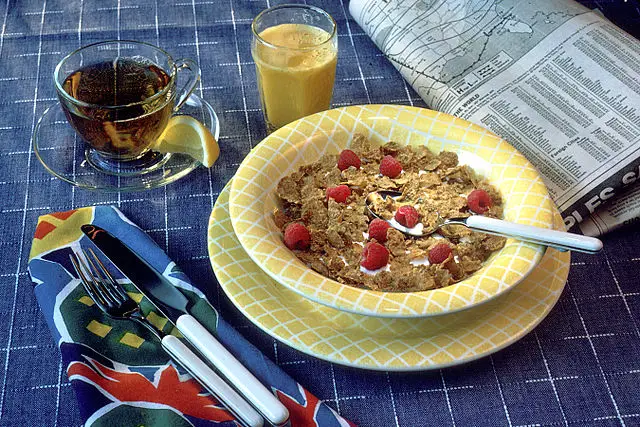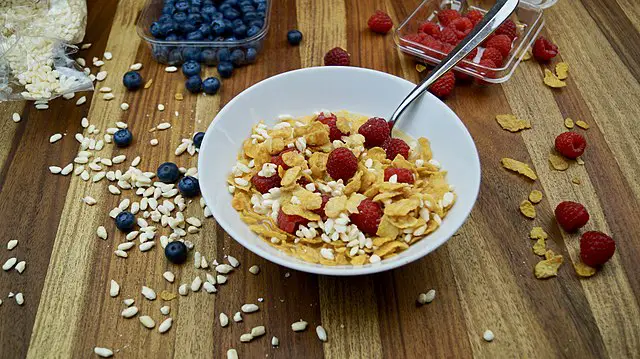Ever wonder why breakfast feels like a sacred ritual? Like something you’re not supposed to skip without consequences?
It’s not just your mom whispering in your ear from 1998, telling you it’s the “most important meal of the day.” It’s something sneakier. A marketing trick from the 1940s. A well-dressed PR guy. And bacon. Lots of bacon.
The truth is, breakfast, at least the one most Americans know today, was engineered. Not by nutritionists. Not by some ancient cultural tradition. But by an advertising genius with a gift for convincing people to believe things. Even if they weren’t entirely true.
A PR Guy Walks Into a Doctor’s Office
His name was Edward Bernays. If that sounds vaguely familiar, it should. He was the nephew of Sigmund Freud, and he took Uncle Siggy’s ideas about the unconscious mind and used them not to heal people, but to sell them stuff.
Bernays didn’t call it manipulation. He called it public relations. And he basically invented the industry.
In the 1920s and 30s, he was the guy corporations called when they needed to make people want what they didn’t need. Cigarettes for women? That was him. Making soap into a moral crusade? Also him.
By the 1940s, Bernays was hired by Beech-Nut Packing Company, who had a problem. They sold bacon. Lots of it. But Americans weren’t eating heavy breakfasts anymore. In fact, many people just had coffee and maybe a piece of toast.
So Beech-Nut asked Bernays: Can you convince people to eat a big, hearty breakfast again? With bacon?
Bernays nodded. And he got to work.
The Science of Suggestion (Kind Of)
Here’s what he did. He went to a company doctor, yes! a company doctor, and asked, “Wouldn’t you say a big breakfast is better for health than a light one?”
The doctor said yes. Of course he did.
Then Bernays wrote to 5,000 other doctors with a cleverly phrased question about whether they agreed that a heavier breakfast might be healthier than skipping it. The phrasing was loaded. It wasn’t asking for proof. It was asking for agreement with a very general idea. Think of it as the 1940s version of a leading poll.
When most doctors replied yes, because who wants to argue against eating more food? Bernays turned that into a press release.
“4,500 doctors agree: a hearty breakfast is healthier.”
Then he ran that in newspapers all across the country. Guess which hearty breakfast Beech-Nut recommended?
Bacon and eggs, baby.

Bacon Becomes America’s Breakfast
The trick worked. Sales rose. People began associating breakfast with sizzling strips of pork. Not because some nutritional revolution had occurred, but because a man with a typewriter and a plan had pulled off a marketing coup.
Let’s be clear: people did eat eggs and meat before this. But the idea that this was the scientifically endorsed, default, correct breakfast? That came straight out of an ad campaign.
And it stuck. Ask someone today to draw a “classic American breakfast,” and chances are it’ll look like a Denny’s menu. Bacon, eggs, toast, maybe some hash browns if we’re feeling fancy.
Why? Because we were told to. And we bought it.
Breakfast as a Social Invention
It’s kind of wild how much of what we think is “normal” was just manufactured habit.
Cereal? That was Kellogg’s idea. He was a doctor, but also a health nut who wanted people to eat bland food to suppress sexual urges. (Yes, really.)
Orange juice? Same deal. It became a breakfast staple thanks to an ad campaign designed to boost citrus sales after World War I.
And bacon and eggs? Classic American tradition? Nah. Just Bernays doing his PR magic.
So if your breakfast looks like a greasy plate at a roadside diner, you’re not honoring your ancestors. You’re following the script of a mid-century bacon executive.
But Wait… Was He Wrong?
Here’s where it gets awkward. Some of the science eventually did back him up.
A protein-rich breakfast can help regulate blood sugar. It keeps you full longer. It might reduce mindless snacking. So maybe Bernays got lucky. Or maybe the doctors were onto something, even if they were nudged into saying it.
But the key difference is that this wasn’t about health. It was about selling pork. Everything else, the breakfast studies, the meal pyramids, the school nutrition programs, came later.
The foundation was built on marketing. Not medicine.
The Breakfast Guilt Trip
The craziest part of this story might be the guilt it produced. You’ve probably felt it. That weird internal voice that says you need to eat something in the morning or you’ll die by noon.
But guess what? Intermittent fasting is now a legit thing. Plenty of cultures don’t eat breakfast at all. And not everyone needs the same food at the same time. Yet here we are, still haunted by that “most important meal” phrase.
That phrase, by the way? Also marketing. Kellogg’s, Post, and other cereal companies ran that line into the ground in the mid-1900s. Doctors didn’t invent it. Ad execs did.
A Slice of Reflection with Your Toast
So what do we do with this?
You can still love breakfast. I do. Pancakes are a religious experience. But knowing where the idea came from helps untangle the guilt. It lets us step back and ask: Am I eating this because I want it? Or because I’ve been told to want it since I was five?
And that’s the thing with a lot of our routines. They feel natural. Automatic. Sacred, even.
But sometimes, they’re just the leftovers of a really good ad campaign.
Final Thoughts: Maybe You’re the Product
Here’s the uncomfortable truth: most of what we do, wear, eat, or buy is touched by someone else’s agenda. Some of it’s harmless. Some of it’s helpful. But a lot of it is just salesmanship in disguise.
Edward Bernays didn’t just shape breakfast. He shaped how we think about choice. He made us believe things were ours, when really, they were handed to us with a shiny headline and a persuasive tone.
So next time you crack an egg or fry some bacon, tip your hat to the man who made it all feel inevitable.
Then eat what you actually want.
Sources:
1. Smithsonian Magazine – Edward Bernays and the Birth of Public Relations
2. BBC – The Surprising Origins of Bacon and Eggs
3. NPR – The PR Man Who Sold America on Bacon

